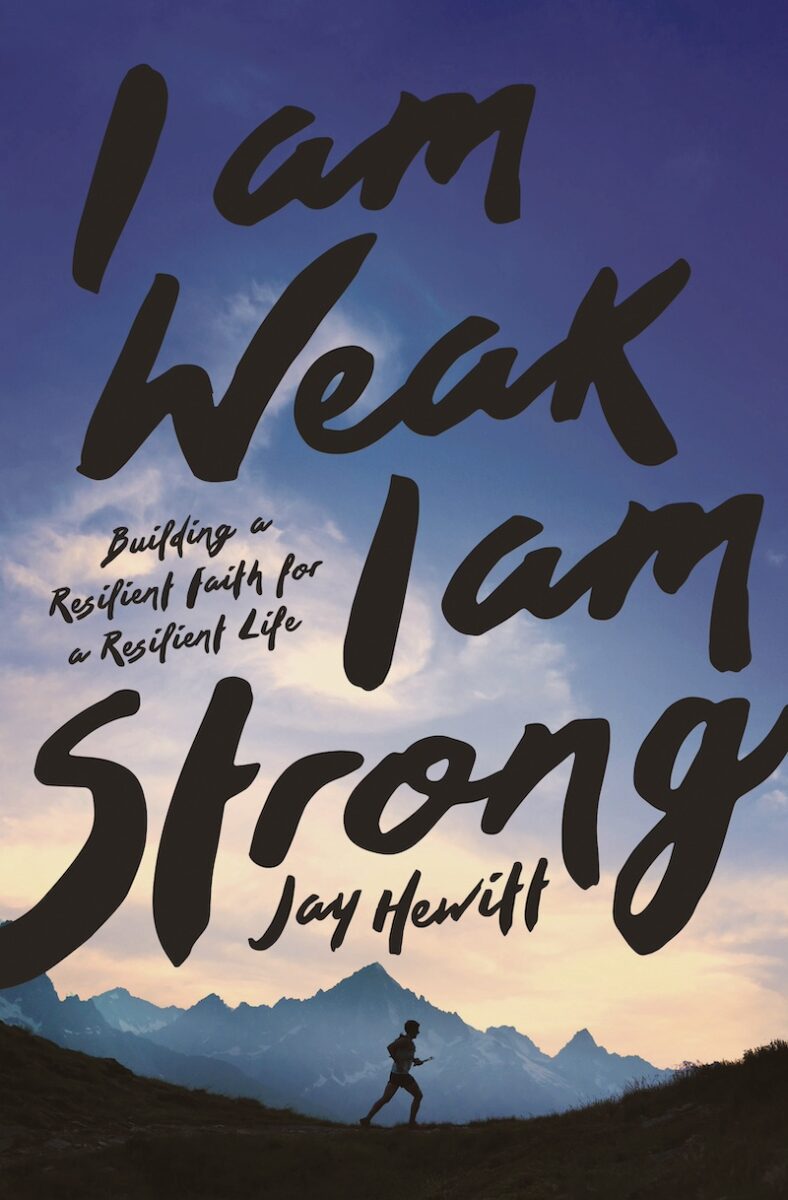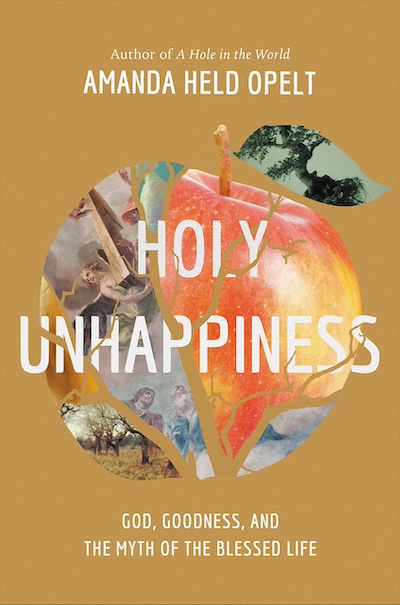Where is Hope When God Doesn’t Take Away Our Burdens?: Jay Hewitt & Amanda Held Opelt
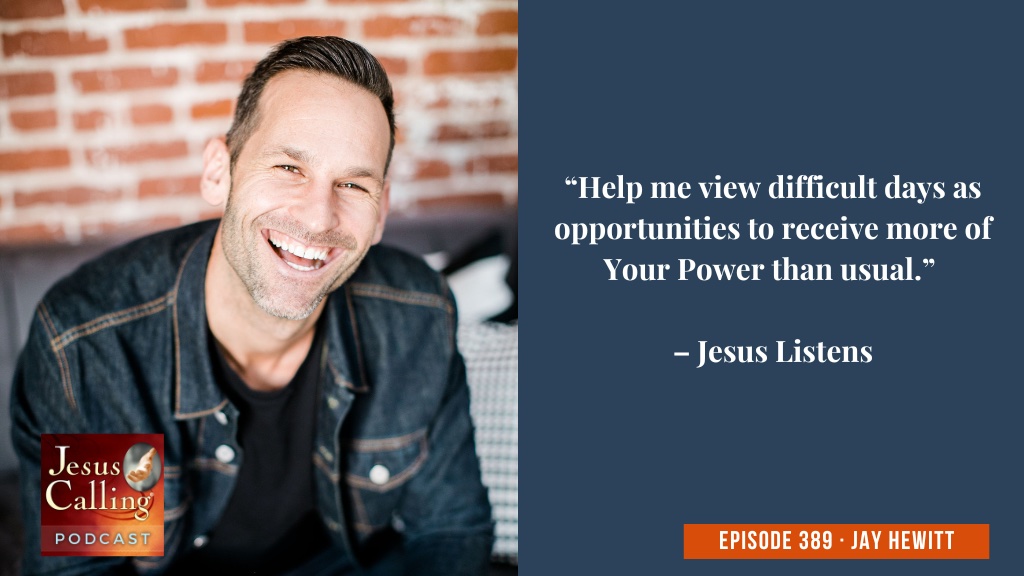
Jay Hewitt: I know that life is hard, there’s always something, and we can do difficult things. We can do difficult things. If I can do it, you can do it, no matter what it is, because we serve the same God, a God who delights in displaying His power in our weakness.
Where is Hope When God Doesn’t Take Away Our Burdens?: Jay Hewitt & Amanda Held Opelt – Episode #389
Narrator: Welcome to the Jesus Calling Podcast. Perhaps you are facing a time in your life where the world around you seems to be crumbling, and your heart is heavy with the weight of unexpected trials. How—in the midst of our struggles—can we remain steadfast, continue to show up, and face each day with courage and resolve when the pain and fear threaten to steal any last shred of hope we have?
Our guests this week believe that every challenge, every hardship, is a part of God’s grand design. They found strength in the belief that their trials were not random occurrences, but purposeful events, shaping them, refining them, and guiding them toward a deeper understanding of God’s love for us.
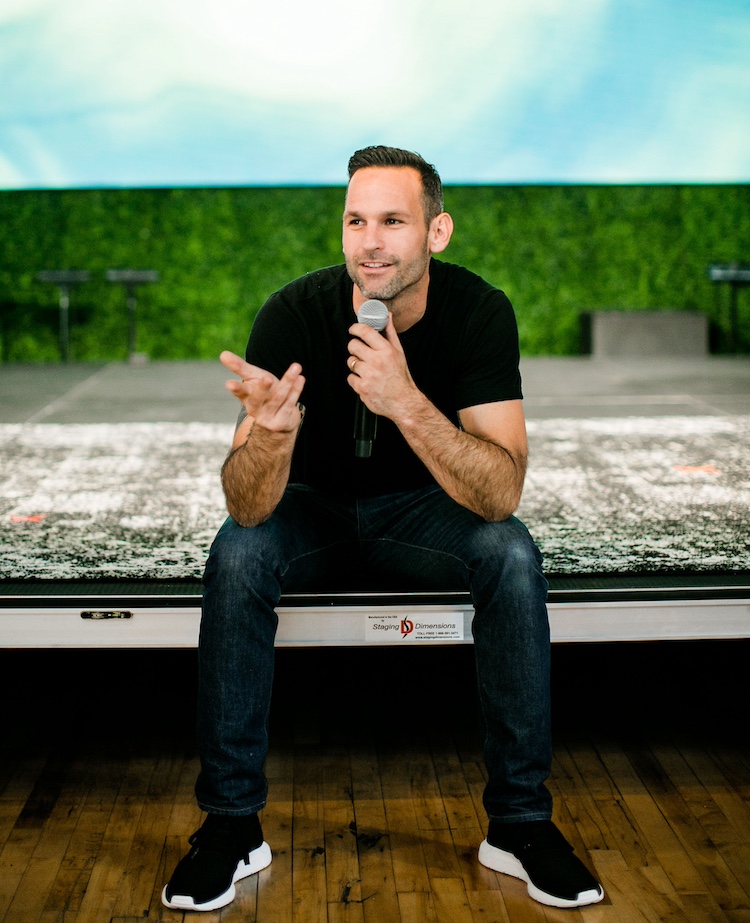
Jay Hewitt, a pastor in southern California, found out at thirty-seven years old that he had a malignant brain tumor. What could have sent him into a tailspin fueled him to do something that seemed counterintuitive to someone who would face months of chemo and treatments that would weaken his body; he decided to run an IRONMAN race. What he learned in this process about his faith and his relationship with God changed his perspective and gave him an appreciation for how God works through our suffering like He’d never had before.
Jay Hewitt: My name is Jay Hewitt. I’m a pastor in southern California, and I’ve also been known as an IRONMAN battling brain cancer.
An Unexpected Diagnosis Changes Everything
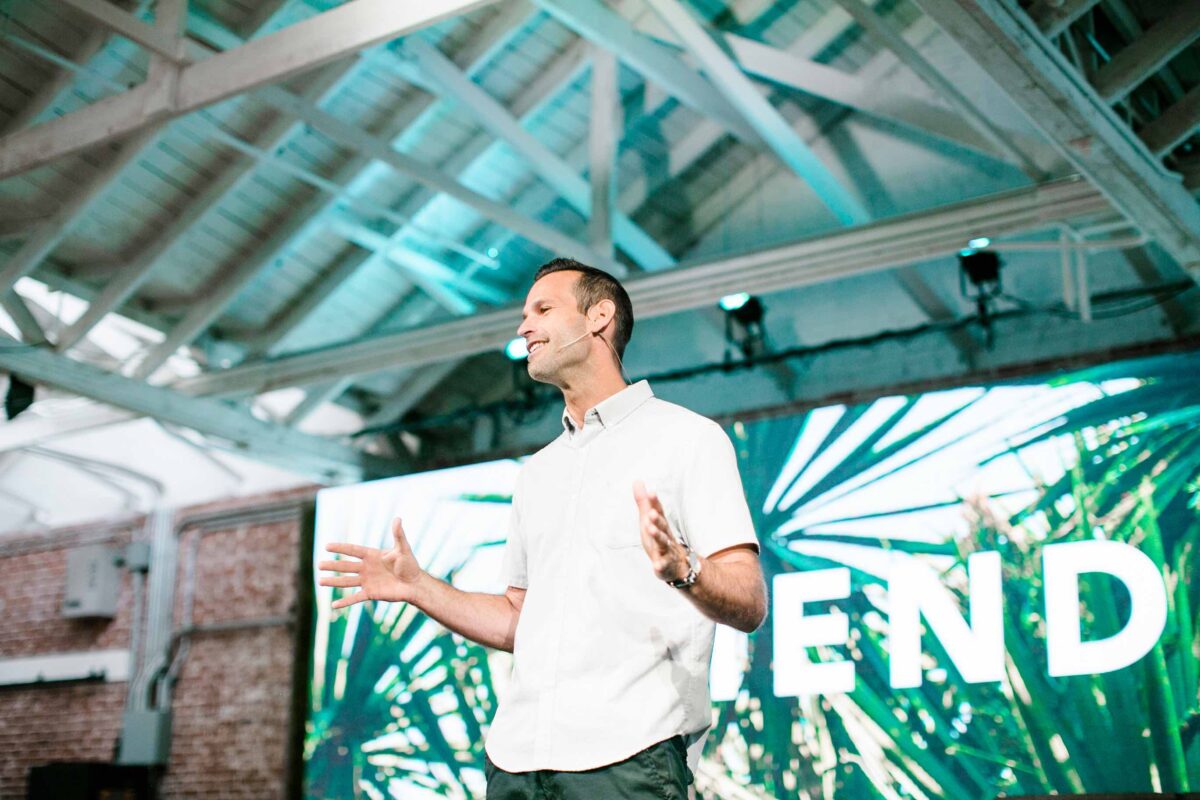
We launched a church in the city of Orange, and it was growing and it was thriving, and it was exciting. The problems that we had are those good problems to solve when something is really coming to life, and I was loving ministry. Family life was great, I had a young daughter, three years old at that time. I’ve been married fifteen years at that point, and out of nowhere, I had a seizure.
It was 2017. I was thirty-seven years old, and I had gone through two brain surgeries, very high risk brain surgeries, because there was a tumor right at the center of my brain. And it wasn’t until the second surgery that they were able to really classify it as cancer. And so I have a Grade II Astrocytoma is what it’s called.
I didn’t know what hit me. And so I went to my general practitioner who sent me to a neurologist that sent me to a radiologist, got an MRI, sent that back to the neurologist, and finally I got a call from a neurosurgeon who said, “Jay, you have a tumor, and it’s right in the center of your brain. It’s the size of a ping pong ball, and we’re not sure if it’s cancer or not.” That hit me out of nowhere, because as a mid thirty year old, I had never experienced any kind of illness, any kind of serious illness. And so I didn’t know how to react in that moment.
And I remember sitting in the neuro-oncologist office waiting to get the test results back. She called us in—I was sitting next to my wife, Natalie—and she said the three words that nobody wants to hear. She said, “You have cancer.” And I heard my wife start crying, I put my hand on her knee, and then I did what any rational person would do.
The next day, I went to Dunkin’ Donuts and had Dunkin’ Donuts. I bought some saturated fat and I had that conversation with God. It’s the moment where you’re asking, “Why me?” You feel somewhat cursed but also confused. And I think my feeling confused was the main feeling that I was experiencing at that moment. I asked God very directly. I said, “What are you doing? What are you doing?” And it wasn’t an angry prayer. I think that I had wrestled enough with God earlier in life where I allowed myself to be very angry with God, and He was always able to absorb my anger.
And so I asked God, “What are you doing?” And then I felt Him respond through the Holy Spirit, just as Jesus promised, taking us back to the teachings of Jesus. And so my heart and my mind, my soul got directed to 2 Corinthians 12:9-10. And that’s where the Lord really started speaking to me.
Real Strength Comes from Wrestling with God
I’d wrestled with God plenty of times before, and I think that real strength comes from wrestling. When you wrestle with God, He strengthens your inner being.
“I’d wrestled with God plenty of times before, and I think that real strength comes from wrestling. When you wrestle with God, He strengthens your inner being.” – Jay Hewitt
Through earlier wrestlings, I had a feeling of, Where else would I go? God has been faithful, God has been gracious. And so it was now, at that time, a natural reflex to turn towards Him. I went from a place of feeling so weak, so vulnerable, so hopeless, to all of a sudden, as the Scripture tells us, that His grace is sufficient and His power is perfected in weakness, or His power is best displayed in weakness, depending on the translation.
I had the satisfaction of knowing, Okay, I’ve got the grace that I need to get through this. Somehow, I’m going to get to experience God’s power being demonstrated through my weakness. And not only that, but I’m going to get to experience the paradox of faith that it’s when I’m weak, that I’m strong. And so although at that moment I was feeling weaker than I’d ever felt in my life, I also had this hope that I was going to get to experience a strength that I had never imagined was possible before.
“I’ve got the grace that I need to get through this. Somehow, I’m going to get to experience God’s power being demonstrated through my weakness. And not only that, but I’m going to get to experience the paradox of faith that it’s when I’m weak, that I’m strong.” – Jay Hewitt
I got a nudge from the Holy Spirit. I wouldn’t say that the Lord spoke to me, like I feel I can claim with how He took me to 2 Corinthians, but I got this nudge from the Holy Spirit saying, “What if you did IRONMAN? What if you did IRONMAN right after your next brain surgery, right when you’re going through radiation, chemo, at your weakest? What if you did IRONMAN, something that you never thought you could do?”
At that point, I didn’t really know what IRONMAN was. I had seen it one time when I was ten years old on ABC’s Wide World of Sports, and it was a triathlon. So I knew it was this mega triathlon where elite athletes would swim, bike, and run 140 miles in under seventeen hours, which it’s kind of inconceivable what that actually means, and what the training looks like to get you there.
You don’t know what you don’t know. And I thought, That sounds like a good idea. It sounds crazy, but it sounds like a good idea, a way to test this. And so then I walked into my house where my wife—who is much wiser than myself—was seated. And I said, “Dr. Natalie Hewett”—she’s a professor. I said, “Nat, what do you think if I did this?” And I was blown away because she said, “I think that’s a good idea.” And then I went to my pastor outside of my church—because every pastor needs a good pastor that doesn’t go to their church. And so I went to my pastor, my advisor, and I said, “Joe, is this crazy?” And he said, “No, I think it’s a good idea.” And then I got this insight that has really driven me; any time there’s a large obstacle ahead of you, there’s great opportunities within that obstacle.
“Any time there’s a large obstacle ahead of you, there’s great opportunities within that obstacle.” – Jay Hewitt
Training for a Triathlon During Cancer Treatment
On my first day of radiation and chemotherapy, I ran one mile. Because you have to understand, I was not a triathlete at that point. I wasn’t even an athlete. I didn’t even play high school sports. And each day I added a little more. And I had made it up to ten miles and I was on a run, a ten mile run, and I had a seizure. And so I went back into my neuro-oncologist the next day—who, by the way, had given me the thumbs up that this wasn’t a bad idea, this was a good idea to train for a long triathlon during treatment. And so I went to her and I said, “Uh, what do you think?” And she said, “That’s fine, just dial it back a little bit.” So the next day I went out and I ran another ten miles, but I ran a little slower and my body was able to do it. And then I kept adding on and adding on.
When I got up to twenty miles—that’s the typical training distance for a marathon—I thought, Okay, my body could handle that, because this whole time, this is like a big experiment on can a body actually handle this kind of strain while going through cancer treatment? And most people would say, “No, only by the strength of the Lord,” and I think that’s one of the reasons why I wanted to do it but I didn’t know how to swim.
So after a hundred meters, I thought to myself, I need to do 3,700 meters. How on earth am I ever going to get there? Fortunately for me, a guy from my congregation, he swam in college and he said, “Hey, I’m going to take off work early every day and I’m going to teach you how to swim.” And he did. It was a lot of yelling at me because I didn’t quite put into practice the things he was telling me, but he eventually taught me how to swim, and eventually I was able to do over two miles. And so I thought, Oh, okay, my body can do this.
Then to the biking, I started off, went for a twenty mile ride, was pretty tired, and thought, Wow, 112…that’s a ways off. But I kept pushing, kept going a little further, and soon enough, I was on a forty mile ride and my back just seized up. It just cramped up, and that’s one of the side effects of chemotherapy. And so, again I thought, Maybe my body can’t do this, maybe this is foolish. But after a slow recovery, it took me over a month to recover, get back on the bike, prayed for strength, went after it again, and pretty soon I was riding 100 miles.
Now I’m training over 100 miles with all this smoke in the air, and it was also a record heat wave in California. It was so hot, and my body just wasn’t keeping up with it. So I prayed and I asked for God’s help. And out of nowhere, I got a call from a guy in Idaho. I barely knew this man, barely knew him. But he called me and said, “Jay, you wouldn’t believe this. I was on a run today and I was running with this woman who has competed for years at the world championship level of IRONMAN, and she is starting to train athletes. And I told her about you, and it turns out that she’s a breast cancer survivor and she would love to train you.”
So I started working with my coach named Margaret, and she would take all my information that was recorded on my Garmin sports watch and she would tailor my exercises for me so that at some points when my body wasn’t responding, my white blood cell count was really low, she would back off on the training regimen. And then there were other times where my body was responding well, and so she really dialed it up to make up for lost time.
Race Day – Surrounded in Prayer
October 20th, 2020 my alarm went off at 4:30 A.M., dark out. I prayed for strength, put my feet on the ground, and I got up and I headed to the coast. I got all my gear with me, headed to Newport Beach on the coast, about a half hour from where I live. And when I show up, the sun’s down, but 150 of my friends got up and they are all there in this gazebo waiting for me. And they threw this opening ceremony for me where a friend of mine flew in from Arizona and he led the ceremony. They all surrounded me and prayed for me, and when they said “Amen,” I went over to the start line, put my foot on the start line, and everybody counted down three, two, one. My wife and daughter had air horns. They hit the air horns, and I hit start on my watch and I charged down for the Pacific Ocean. I jumped in. It was cold. It woke me right up early in the morning, and I started swimming hard.
Halfway down the pier, I saw my daughter and we linked eyes and we both knew that we were looking at each other. And she waved at me and I was in this perfect part in my stroke where my hand was out of the water, and I waved back to her and I saw her jumping up and down, jumping up and down. And I was just filled with so much encouragement and joy that I started swimming even harder, even faster. And two and a half miles later, I jumped out of the water and I was feeling good.
I jumped on my bike, headed for the Pacific Coast Highway, and watched the sunrise as I rode up towards Long Beach, and it was a beautiful ride. No wind, seventy-four degrees, and it was just full of joy.
When I got out of Newport Beach, Huntington Beach Police Department picked me up, and then Long Beach, and all along the way, as I went through all these different cities for 100 miles, I had a police escort and it was incredible. I felt like I was a professional rider riding in like the Tour de France or something. I wasn’t, but my community was rallying around me. And again, the joy was just immense, so much so that after I came off of 112 miles, I was feeling good.
So I’m roughly 115 miles into this race and I feel like I still have energy left, and it’s time to run a marathon. Now, let me remind you, I’ve never ran a marathon before. I’ve never ran a half marathon before. So this is daunting to think about running a marathon after 115 miles, but I was feeling pretty good. So I put on my running shoes and I took off on the course and I was planning to run ten minute miles.
I looked down at my watch after a mile and I’ve been running eight minute miles instead of ten. So I tell myself, Slow down. It’s a marathon. It’s not a sprint, literally. Slow down. So I did. So the next next mile, I looked down and I slowed down to an eight and a half minute pace, which I knew was way too fast, but I was feeling good. And I thought, Well, maybe this whole when I’m weak, then I’m strong…maybe I’m like super powered by the Holy Spirit, but the next mile, it happened. All of a sudden I was feeling good until I wasn’t.
Get Up, Stay Strong, and Press On
So now I’m feeling like I’m running with the stomach flu. I’ve still got over twenty miles to go, and I feel terrible and also, I can’t take in any more water. And I just realized even if I wasn’t going through chemotherapy, if I was just fresh and ready to go, nobody can run a marathon without a drink of water. The body just can’t handle that. And so at that point, I just thought, I don’t know when, but my race is over. I’m going to keep going for as long as I can, but there’s no way..
And I kept going, and I changed my focus, my mantra. Now, what I was focusing on is not proving anything, but setting an example. And I said that to myself over and over, “You’ve got nothing to prove, just an example to set. You’ve got nothing to prove, just an example to set.” Because at that point, I knew I wasn’t going to make it to the finish line where my daughter and my wife were waiting for me, but I wanted to be able to look my daughter in the eye and tell her, “I gave everything to make it back home to you. I gave all that I had to make it back home.” I wanted to set that example for her.
And so I kept pressing on, and about ten miles later, God answered my prayer for help. My coach, who had flown in from Idaho, found out I was in trouble, tracked me down at the next aid station, and she brought her running shoes and she started running beside me. And as she ran beside me, she started troubleshooting with me. Now she’s a veteran, she has raced at the world championship level for years. This is my first attempt. And so she started troubleshooting with me, I felt joy start to fill me up again. And I started to feel like, Okay, I’ve got some wind in me again. And I kept going.
And at that point, the sun started to set, which is a mind trip, to start your race when it’s dark out, race all the way throughout the day, and then to see the sun set again, but it did. It set and it was dark and all of a sudden a squad car pulled up behind me, this police car pulled up behind me shining their spotlight, and they started to give me encouragement over the loudspeaker. “You got this Jay. You got this. Keep going. We’re getting closer. You got this.” And I look back and there they are waving to me. And then another car pulls up behind them, and another. Soon on my run, I’ve got five police cars following me, giving me encouragement, and supporting me by my community.
And at that point, I’m turning into my neighborhood and in the distance I see these lights and I hear music and I can hear my friends having a good time. There is a party waiting for me, and it was only a mile away. And again, it just filled my spirit with joy. And I understood the meaning of the Scripture, Nehemiah 8:10, “The joy of the Lord is our strength.” And I turned on to my final street and on both sides of this red carpet were my friends and family, this passageway of support. And under this giant, magnificent finishing structure is the IRONMAN finishing tape, and behind that, my wife and daughter are standing, my house to the right of them. They’re holding a sign that says “There’s no place like the finish line.” And when I saw them, everything else went to a blur.
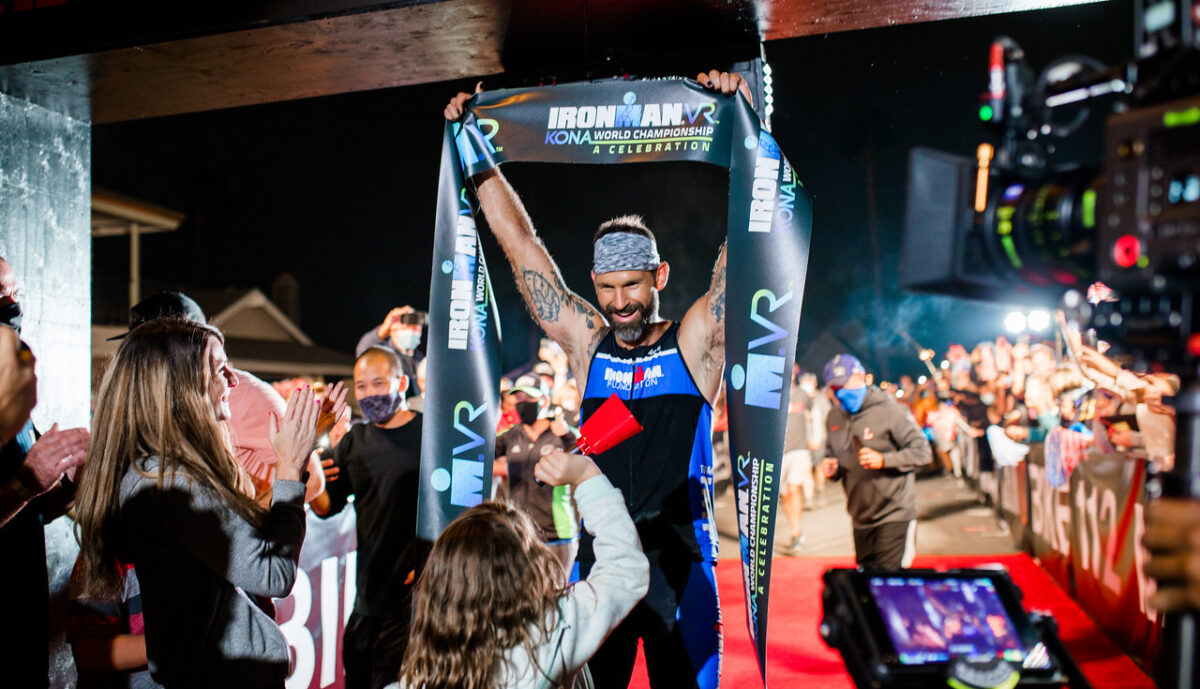
And I floated down that last straightaway, and fourteen hours later, after 140 miles, I crossed the finish line. I was reunited with my family. I gave my wife a kiss, and then I got down on my knee and I finished what I intended to do.
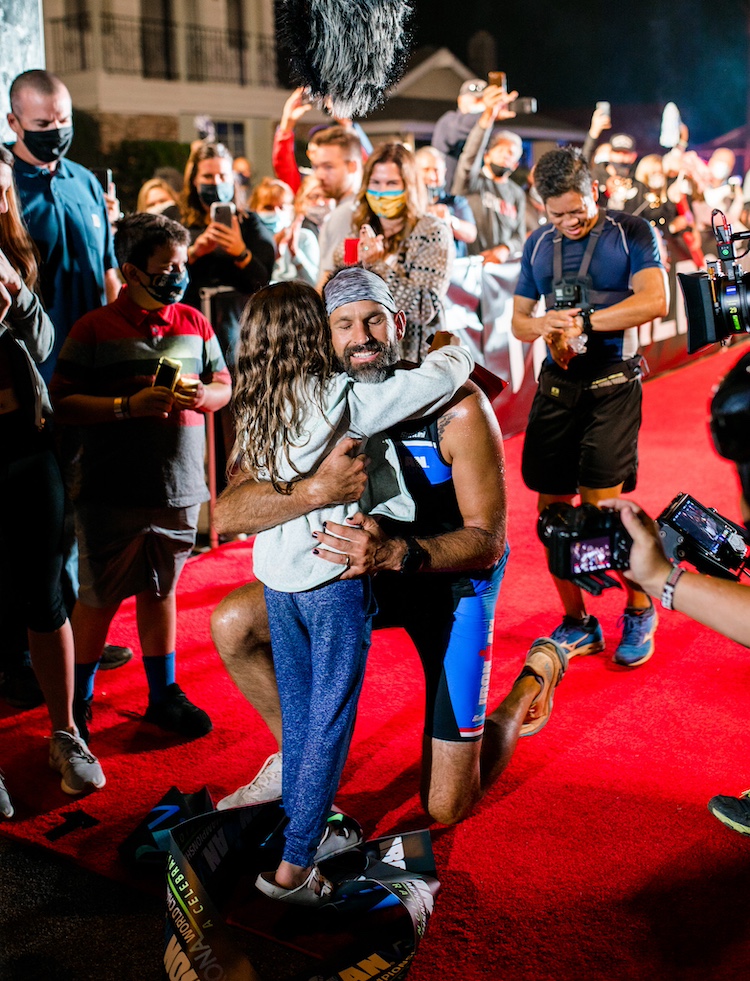
From the very beginning, I said to my daughter, Hero, I said, “Hero, if I can do it, you can do it, because we serve the same God, the God who turns weakness to strength, the God who delights in displaying His power through our weakness. Honey, if I can do it, you can do it. But understand this, when God puts dreams in your heart, life is going to knock you down. You have an enemy that’s going to knock you down. But Hero, hold on to the hope of Jesus Christ. In His power, get up, stay strong, and press on and see the dreams that God has given you be fulfilled in your life.”
“In His power, get up, stay strong, and press on and see the dreams that God has given you be fulfilled in your life.” – Jay Hewitt
I personally had that experience of turning to God, asking Him a very straightforward question, and then feeling like He answered me. And so I felt the presence of God very close to me, and I think oftentimes in crisis, if you turn to God in prayer, He reveals Himself more than on your normal day-to-day basis.
This is from Jesus Listens, March 10th:
My great God,
I don’t want to let any set of circumstances intimidate me. Please keep reminding me that the more challenging my day is, the more of Your Power You provide.
Lord, You know what each of my days will contain, and I can trust You to empower me accordingly. You’ve been showing me that the degree to which You strengthen me on a given day is based mainly on two variables: the difficulty of my circumstances and my willingness to depend on You as I’m dealing with those challenges.
Help me view difficult days as opportunities to receive more of Your Power than usual. Instead of panicking during tough times, I can look to You for all I need. Thank You for Your reassuring words: “As your days, so shall your strength be.”
In Your strong Name, Jesus,
Amen
Narrator: You can find more of Jay Hewitt’s story in his book, I Am Weak, I Am Strong: Building a Resilient Faith for a Resilient Life, available everywhere books are sold.
Stay tuned to Amanda Held Opelt’s story after a brief message.
Inspiration At Your Fingertips

Find inspiration as close as your mobile device with the Jesus Calling App. Available on both Android and Apple, the Jesus Calling app is packed with digital and audio features that make this daily devotional more accessible than ever.
Users can read Jesus Calling and other Sarah Young devotions—such as Jesus Listens or the new Living Hope devotional, which is available only inside the Jesus Calling app. And users can listen to the Jesus Calling podcast, read the latest blogs and magazine articles—all from one centralized location on their phone.
Get started today for free. Look for the Jesus Calling app in the Apple Store or the Google Play Store.
Our next guest is Amanda Held Opelt, a seasoned author, speaker, and songwriter who focuses on faith, grief, and creativity. With fifteen years of experience in non-profit and humanitarian work, she’s seen the human love that rises above and surrounds a hurting community—and the hope that gets rediscovered after seemingly, your life is destroyed.
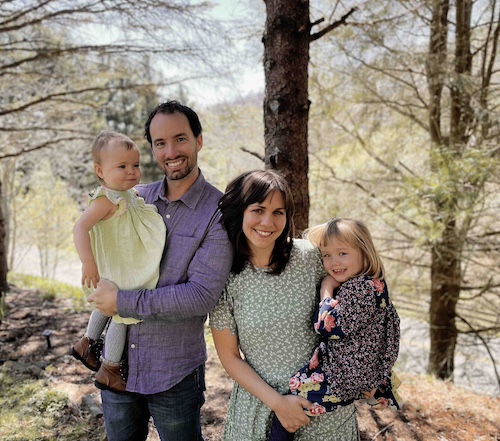
Amanda Held Opelt: My name is Amanda Held Opelt. I’m a singer, songwriter, a speaker, and an author living in the mountains of western North Carolina here with my husband and my two young daughters. These days, I spend most of my time chasing my kids around and writing when I have a few free minutes and just sharing life with our community and church family here in Boone, where I serve on both the teaching team and the worship team.
Professionally, I’ve mostly worked in the non-profit and humanitarian aid sector. And to be honest with you, when I look at that career path, the common thread is probably an interest that I’ve always had in how the human heart confronts suffering in life. And so maybe it sounds a little strange to say I have an interest in suffering, but I guess what I mean is that I’m saying that I’m passionate about how the experience of loss or hardship becomes integrated into a person’s story—how it makes them who they are, how it impacts their relationship with God and with others, and how people rise up and move forward in the aftermath of grief or a disaster.
“I’m passionate about how the experience of loss or hardship becomes integrated into a person’s story—how it makes them who they are, how it impacts their relationship with God and with others, and how people rise up and move forward in the aftermath of grief or a disaster.” – Amanda Held Opelt
I’m interested in emotional, physical, and spiritual resilience. And I think that’s what led me to pursue non-profit work just after college, working with women who were struggling with the repercussions of generational poverty here in the U.S. And in that role, I learned a lot about the impact that racial and economic injustice can have on communities.
It was really eye opening, having come from a fairly privileged upbringing myself, and then I got to witness what happens when people show up for other people when we live as neighbors and offer ourselves and offer resources to one another and come alongside one another in those spaces of lack. So I got to witness the power of that and also witness what the church has to tangibly offer to people who are hurting.
“I got to witness what happens when people show up for other people when we live as neighbors and offer ourselves and offer resources to one another and come alongside one another in those spaces of lack.” – Amanda Held Opelt

So later, when I went on to serve in the humanitarian aid world, my job there was to create staff care programs and resilience training for aid workers who were serving in disaster zones and war zones and areas of epidemic outbreak. And through that work, I was able to travel to some truly devastated parts of the world.
And there were times where the pain that people carry, the evil that humans perpetrated against other humans was really shocking to me…truly, truly shocking. But equally surprising is the beauty that exists even in those most dire of circumstances. The human love that I got to see that rises above and survives and surrounds a hurting community and the hope that gets rediscovered after a natural disaster has destroyed everything you own.
Is it Mr. Rogers who said, “Look for the helpers”? I think witnessing the love and sacrifice of aid workers running into the fire and running into the disaster zones and warzones to help was something that I’ll just never forget. And so even though my profession at the time wasn’t as a writer or a songwriter, I think all along I was collecting moments in time. I was becoming educated on what it meant to be a human in a hurting world, and I was always using the written word or the sung word to process what I was seeing, to tell those stories of pain and loss and hope and resilience. And in a lot of ways, I think it was this education that helped prepare me for my own season of loss.
When Heartbreak Comes, Lamenting Can Heal
In my mid thirties, I walked through a season of infertility that included three heartbreaking miscarriages, and I lost my only sibling. My older sister died of a very sudden illness. And that experience was really the atom bomb that went off in my life. But I knew in part because of the work that I’d done in the world that these losses were not going to be this single event that I would somehow just experience for time and then get past or move on from. I knew that these losses would be woven into my story and really fundamentally change me and who I was going forward.
We’ve all heard the Psalms of lament, David crying out to God from the wilderness in his despair, but I think we think that those Psalms don’t really belong in our day to day lives or in our church services. We’d rather sing the songs of victory and celebration and praise, but I’m afraid if those are the only songs we sing, then we give people a false impression of what it means to be human in the aftermath of the fall. We are given these holy songs of lament as a form of worship, because part of being human made in the image of God, is to suffer pain, and in fact, God Himself is a highly emotive God. A God who, yes, expresses joy and peace, but also expresses grief and sorrow. We see Him in Scripture expressing anger and regret and frustration and even jealousy.
“We are given these holy songs of lament as a form of worship, because part of being human made in the image of God, is to suffer pain, and in fact, God Himself is a highly emotive God.” – Amanda Held Opelt
I think part of the reason I believe lament is such a high form of worship is that to me, worship is just any time we stand in agreement with God about what is true, about who He is, and who we are, and when we cry out to Him because the world is not as it should be, when we lament injustice and violence, or when we weep over death.
I like to think a lot about Jesus in the Garden of Gethsemane [Matthew 26: 36-46], who was so overwhelmed with dread at the prospect of the cross that He had what some scholars and psychologists believe was a panic attack in that garden. So these are difficult emotions that I truly believe belong in our lives and our church services, they have a place in the Christian life. And God Himself has demonstrated that, but if we keep these emotions hidden or if we stuff them down or we keep them numbed, if we pretend that we feel fine when we really don’t feel fine, then those hard emotions will never see the light of day. They’ll never experience the healing that they need. And so lament, to me, is sometimes the only path to real healing.
What is A “Good Life?”
I’ve just come to believe that so many of our perceptions about what a “good life” are, are really more influenced by modern, affluent, western American culture than by scripture or by the teachings of Jesus. If you do a simple search of the hashtag“blessed on social media, what is it that you see? You’ll see everything from pictures of a new vacation home, to cute, healthy kids, to, like a nice pumpkin spice latte that you’re sipping as you have your quiet time.
I think we tend to measure goodness based on a few things: accomplishments, accumulation of stuff, or accolades of the praise of other people, and sometimes we put a Christian veneer on these things like, “Look at this big house God gave me,” or, “Look at this great ministry He gave me, look at all this big church or outreach I was able to build,” and it’s really less about God and more about us, more about our own accomplishments, more about our own comfort, our own good feelings and our desires. So I think we’ve really sometimes conflated the “good life” with really just American affluence or sense of accomplishment.
I think we need to look at what Jesus says is the blessed life, and He’s very good to do this for us in the Sermon on the Mountain, the Beatitudes. Jesus says, “You are blessed when you are poor, when you’re persecuted, when you hunger and thirst for righteousness.” Jesus doesn’t talk about accomplishments or accolades as generators of blessing. He talks about things like meekness and mercy and peacemaking and purity. I think what God really wants with us, where He knows the blessing is, is in intimacy. He wants a relationship with us, and that’s where we find the blessing. And I think we tend to think of blessing or happiness or goodness as something that we have to earn or build for ourselves, but in scripture, we learn that blessing is a gift freely given by God. Relationship with God, intimacy with God, is something He offers to all of us, and sometimes it’s actually the path of pain or those uncomfortable emotions. It’s the path of lack that brings us into a deeper, richer intimacy with God.
“I think what God really wants with us, where He knows the blessing is, is in intimacy. He wants a relationship with us, and that’s where we find the blessing. Relationship with God, intimacy with God, is something He offers to all of us, and sometimes it’s actually the path of pain or those uncomfortable emotions. It’s the path of lack that brings us into a deeper, richer intimacy with God.” – Amanda Held Opelt
You Can Be a Christian and Be Authentic Through Joy and Pain
Sometimes I think we believe that the world will be drawn to us as Christians because of our happiness, that if we can just show people that believing in Jesus will make everything better, and you’ll be happy and comfortable for the rest of your days. Sometimes I think that’s how we approach evangelism or mission work, but what I think the world really wants is not our veneer of happiness. I think what the world really wants is realness. I think the world wants authenticity in both our joy and our sorrow. I think the world wants to see people who are truly present for both our happiness and our sadness so that we can show them how God meets us in both those experiences.
What I love about resources like Jesus Calling, is I feel like we constantly in life need to be informed of what’s true: the truth of God’s love, the truth of our own dignity, and the truth of the hope of redemption. And Jesus Calling, I think, allows us to be confronted daily with those truths. I’m a huge fan of rituals and a big believer in the importance of habits. I love committing to rhythms of prayer and scripture reading, because those practices serve as a safeguard to us when our emotions aren’t really feeling connected to God. When we have these habits, they make space for our faith, even when our faith feels small. And so that’s the gift that a resource like Jesus Calling can be.
“I love committing to rhythms of prayer and scripture reading, because those practices serve as a safeguard to us when our emotions aren’t really feeling connected to God. When we have these habits, they make space for our faith, even when our faith feels small.” – Amanda Held Opelt
As someone who has myself struggled with an anxiety disorder my whole life, I’m a person who is a big believer that a relationship with God doesn’t always make the pain go away. It doesn’t always make every ounce of worry or fear or anxiety just magically disappear. I think grief will still feel like grief, loss is still going to feel like loss, no matter our commitment to the spiritual disciplines. God doesn’t always take away that heavy burden we are carrying, but I do believe He gives us the strength that we need to carry it. And more than that, I think what God wants to give us more than happiness—which is really just a comfortable, pleasant feeling in the moment—I think what He wants to give us is hope, and hope to me is sturdier than happiness. Hope is faith in the future, redemption to come. Hope is fixed and doesn’t change based on our circumstances.
Hope is the mending and healing of all suffering, not just for me, not just my circumstances, but for the whole world. And so my prayer is that as a Christian, I would not be someone who’s just marked so much by my happiness, but more that I would be a person who is marked by hope, that as Christians, we would be people not just of happiness, but people of hope.
“My prayer is that as a Christian, I would not be someone who’s just marked so much by my happiness, but more that I would be a person who is marked by hope.” – Amanda Held Opelt
Narrator: To learn more about Amanda, visit www.amandaheldopelt.com. And be sure to check out her newest book, Holy Unhappiness, at your favorite retailer.
If you’d like to hear more stories about how we can find hope through trials, check out our interview with Meg Apperson.
Next week: Jana Monroe
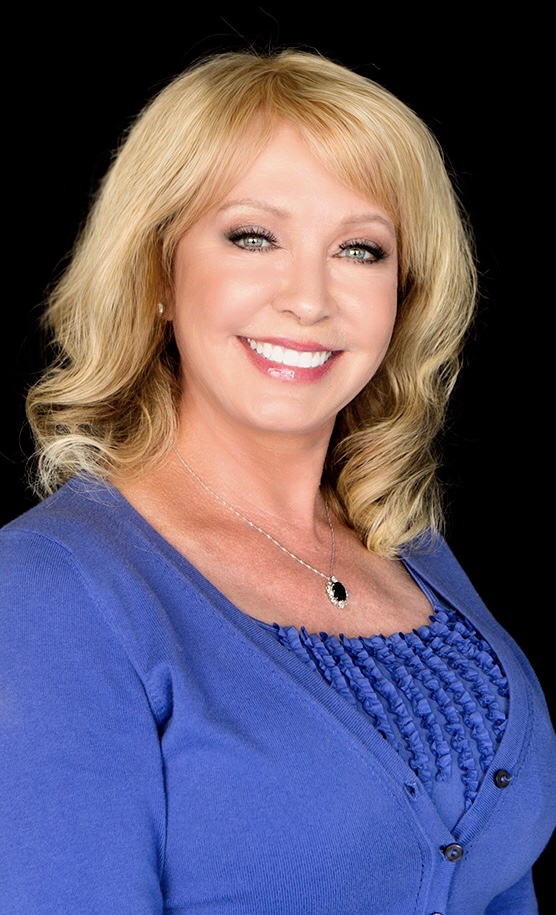
Next time on the Jesus Calling Podcast, we’ll hear from former FBI agent Jana Monroe. Throughout her impressive career, Jana worked on over 850 homicide cases, including those of notorious serial killers Ted Bundy and Jeffrey Dahmer. Although her line of work has been dark and gruesome, Jana shares how it trained her to see the good in the world, and in other people.
Jana Monroe: I looked so much and was so immersed in a life of looking at people who were evil that it helped me recognize the good in most people, and it just opened up my heart and mind to see more that we’re all people, we all have idiosyncrasies and differences. But it’s the good in people and that effort and those that are seeking God and seeking good that I was able to see a lot more clearly.
